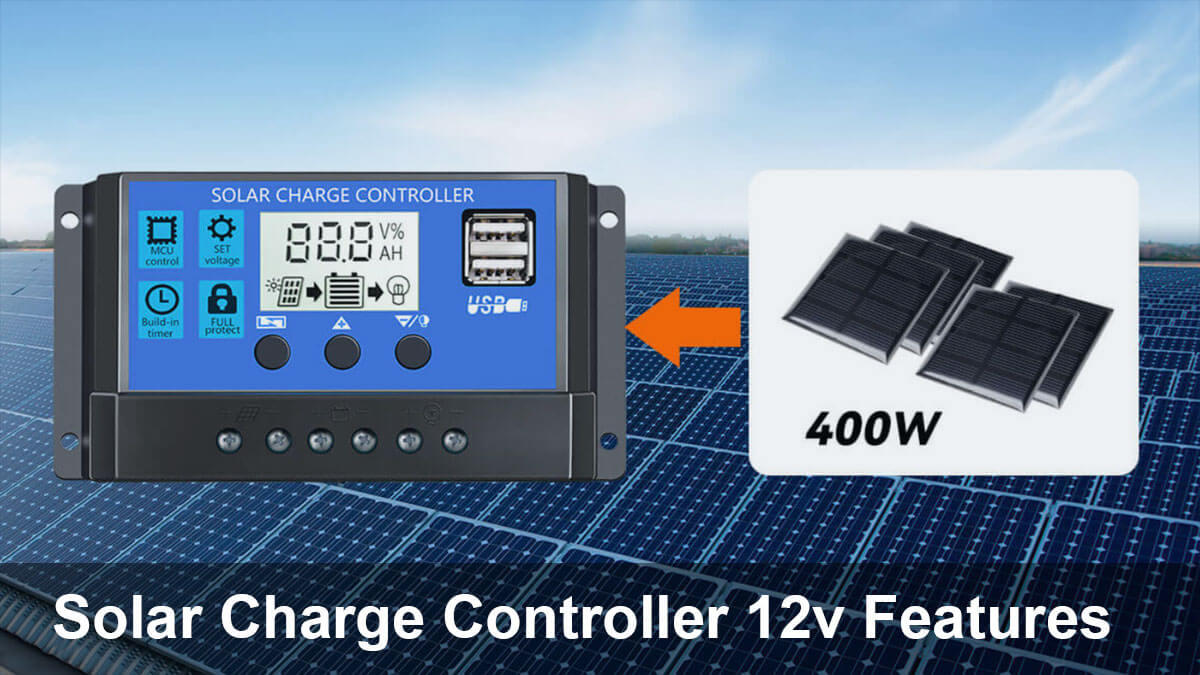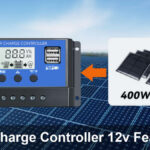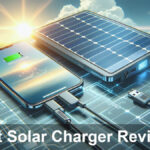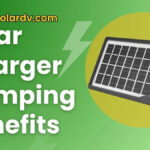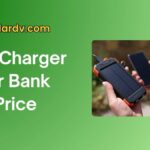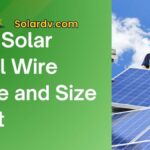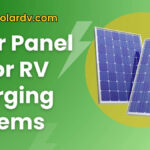If you are interested in knowing about solar energy, one key component you’ll frequently hear about is the solar charge controller 12v. This small but essential device plays a crucial role in managing and optimizing the power your solar panels produce, particularly in 12v systems.
Whether you’re building a simple solar setup for an RV or a more complex off-grid system, understanding the value and function of a solar charge controller can make a significant difference.
Why Choose a Solar Charge Controller 12v
Choosing a solar charge controller 12v can significantly enhance your solar power system’s efficiency and longevity. Here are eight compelling reasons to opt for a 12v solar charge controller:
- Cost-Effectiveness: A 12v solar charge controller is often more affordable than higher voltage systems, making it an ideal choice for beginners and budget-conscious users.
- Ease of Installation: 12v systems are generally simpler to set up, which is beneficial for DIY enthusiasts or those new to solar technology. Most 12v components are readily available and compatible.
- Compatibility: Many off-the-shelf solar panels, batteries, and appliances are designed for 12v systems, ensuring compatibility and simplifying your selection process.
- Protection Against Overcharging: A solar charge controller prevents overcharging, which can damage batteries. It regulates the voltage and current sent to the batteries, prolonging their lifespan.
- Enhanced Battery Management: These controllers optimize battery charging by managing the charge cycle, leading to improved battery health and performance. They can also provide important data on battery status.
- Versatility: 12v solar charge controllers are suitable for various applications, including RVs, boats, cabins, and off-grid homes, making them a versatile choice for many users.
- Low Maintenance: Most 12v solar charge controllers require minimal maintenance, allowing you to focus on using your solar energy system rather than constantly monitoring it.
- Scalability: If you plan to expand your solar setup in the future, starting with a 12v system and charge controller makes it easier to add more panels or batteries as needed.
Top 5 Solar Charge Controllers
When you’re shopping for the best solar charge controller 12v, there are plenty of options available on the market. Below are the top five, known for their reliability, efficiency, and ease of use:
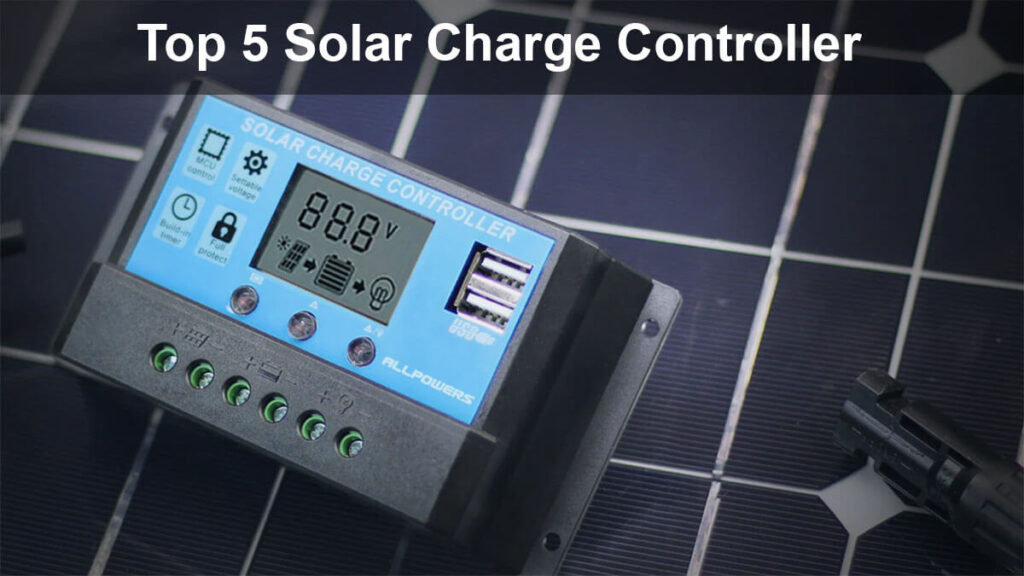
- Victron SmartSolar MPPT 100/30: Victron is known for its high-end solar equipment, and this model stands out for its Bluetooth capabilities, allowing you to monitor your system via an app.
- Renogy Wanderer 30A PWM: Renogy is a trusted name in the solar industry, and the Wanderer is perfect for budget-conscious buyers who need a reliable, no-nonsense controller.
- EPEver Tracer 4210AN: This MPPT controller is known for its advanced features and high efficiency, maximizing the energy harvest from your solar panels.
- Outback Flexmax 80: If you’re looking for something with more power capacity, the Outback Flexmax is perfect for larger 12v systems, offering robust features and great expandability.
- Morningstar SunSaver SS-10L-12V: This simple, durable controller is ideal for smaller systems and is trusted for its longevity and performance.
Is a Solar Charge Controller AC or DC
Here’s a simple comparison table to help clarify the difference between AC (Alternating Current) and DC (Direct Current) in relation to a solar charge controller:
| Feature | AC (Alternating Current) | DC (Direct Current) |
|---|---|---|
| What it stands for | Alternating Current | Direct Current |
| Used by solar charge controller | No | Yes |
| Power source | Typically from power grids | Solar panels produce DC |
| Flow of current | Changes direction periodically | Flows in one consistent direction |
| Stored in batteries | No, batteries store DC | Yes, batteries store DC |
| Inverter required for AC use? | Yes, to convert DC to AC | No inverter needed for DC use |
| Common applications | Household appliances (AC outlets) | Solar panels, batteries, LED lights (DC systems) |
Choosing the correct size for your solar charge controller 12v depends on two key factors: the total wattage of your solar panels and the current (amps) that your system generates. You can calculate the required controller size by dividing the total watts of your solar panels by the battery voltage (usually 12v). For example, if you have 400W solar panels, you would divide 400 by 12, giving you approximately 33.3 amps. In this case, you’d want a controller with at least a 40A capacity for some safety margin.
A 12v solar charge controller works by regulating the flow of electricity from the solar panels to the battery. When the solar panels generate power, the controller monitors the voltage and ensures that the battery is charged at the appropriate rate. It prevents overcharging by reducing the current when the battery is nearly full and stops the flow of electricity when it’s fully charged.
Setting up a solar charge controller 12v is a fairly straightforward process:
Connect the Battery First: Always connect the charge controller to the battery before attaching the solar panel. This ensures the controller starts in the proper mode.
Connect the Solar Panel: Next, connect your solar panel to the charge controller, ensuring the positive and negative terminals are connected correctly.
Check the Settings: Ensure that the charge controller is set up for the type of battery you’re using (e.g., AGM, Gel, or Lead-Acid).
Monitor the System: Many controllers come with a display or app for monitoring voltage levels, charge status, and performance.
Conclusion
In any solar setup, the solar charge controller 12v plays an essential role in protecting your batteries and ensuring optimal performance. Whether you’re setting up a small system for your RV or a more permanent installation for your home, choosing the right controller can make all the difference in the efficiency and longevity of your system.
With the right setup, you’ll be able to harness the full potential of solar energy, making your investment in renewable energy both practical and sustainable
